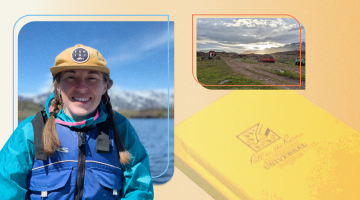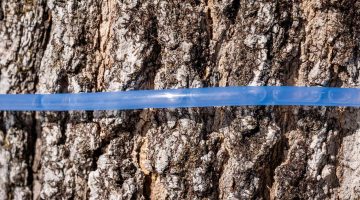Boise State Public Radio interviews Ph.D. candidate on Indigenous land reclamation
Boise State Public Radio interviewed University of Maine Ph.D. candidate Jason Brough on Indigenous nation’s reclamation and rejuvenation of their land amid changing climate. “The key point to understand is that Indigenous peoples are not the cause of our current climate crisis,” Brough said. “We’re trying our best to do our part for this, but […]
Read more




